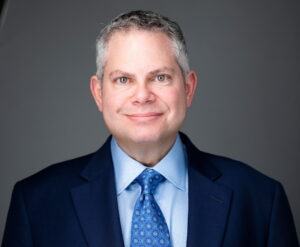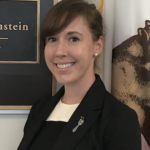 Marc Hirsh, MD, FACR, a rheumatologist with The Hirsh Center for Arthritis and Sports Medicine, Delray Beach, Fla., has spent his career treating patients and fighting for the future of medicine. As vice president of the Florida Medical Association’s political action committee, and a past president and an active member of the Board of Directors of the Palm Beach County Medical Society, Dr. Hirsh is a powerful advocate for both physicians and rheumatology patients.
Marc Hirsh, MD, FACR, a rheumatologist with The Hirsh Center for Arthritis and Sports Medicine, Delray Beach, Fla., has spent his career treating patients and fighting for the future of medicine. As vice president of the Florida Medical Association’s political action committee, and a past president and an active member of the Board of Directors of the Palm Beach County Medical Society, Dr. Hirsh is a powerful advocate for both physicians and rheumatology patients.
He’s volunteered at both the national and state levels, and has been working with the ACR on a unified approach to physician payment reform, a top legislative priority for the ACR.
“We’re looking at successive cuts to the MPFS, the Medicare Physician Fee Schedule, and trying to get [those] cuts reversed,” Dr. Hirsh says. “We also hope to fix this going forward by having the Medicare Physician Fee Schedule linked to the inflation index.”
Dr. Hirsh points out that the Medicare Physician Fee Schedule is the only part of the entire program not tied to inflation.
“Hospital payments, durable medical equipment, surgery centers, nursing homes—almost every service paid for by Medicare has been adjusted for inflation over the past 20 years,” Dr. Hirsh explains. “The only exception is the Physician Fee Schedule. Even without the repeated cuts, we’ve seen year after year [that] inflation alone has effectively slashed physician payments by 40% over the past two decades.”
In past years, Dr. Hirsh says there’s been retroactive temporary legislation known as a “doc fix” that prevents provider reimbursement cuts from being implemented. This year, there was another 2.8% cut, and Dr. Hirsh says that although advocates weren’t able to get a doc fix passed, they hope Congress will address this issue via reconciliation later this year.
Advocating for Private Practices
Dr. Hirsh warns that rising inflation, combined with persistently low Medicare reimbursement rates, is putting access to care at risk. He emphasizes that if the issue isn’t addressed, private medical practices may not survive.
“Over the past decade, major insurance, along with large hospital systems and private corporations, have been steadily taking over by employing more physicians,” Dr. Hirsh says. “If Medicare continues to cut payments to doctors in private practice, the remaining few will be pushed into joining these large healthcare systems.”
Dr. Hirsh believes physicians should have the freedom to work in any setting, whether it’s a large healthcare system or a local private practice.

